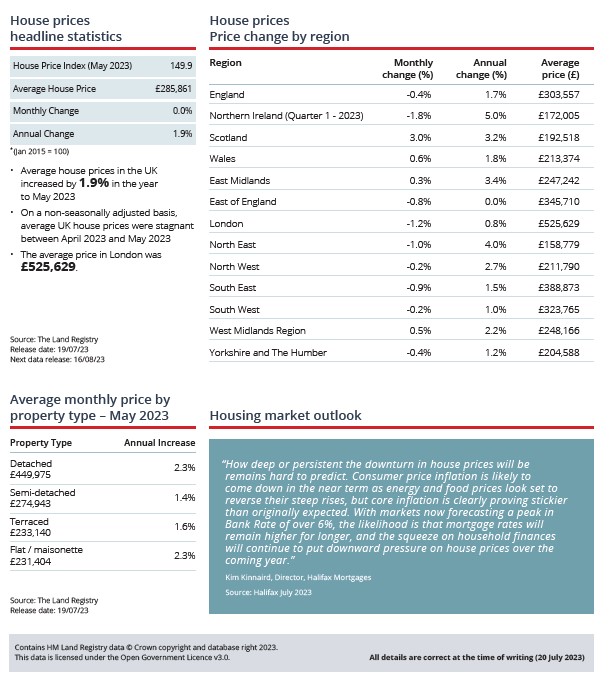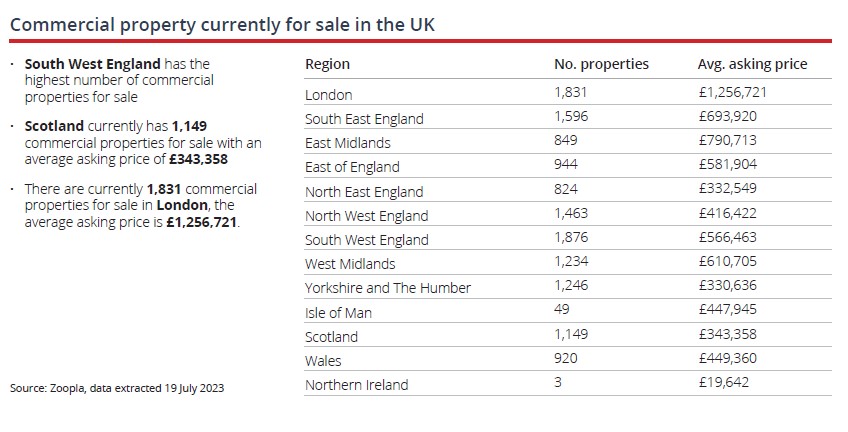RICS survey shows demand falling
Activity in the residential sales market deteriorated in June, according to the latest UK Residential Survey by the Royal Institution of Chartered Surveyors (RICS), with negative net balance readings returned across many indicators.
New buyer enquiries fell to a net balance of -45%, compared to -20% recorded in May, the lowest such reading since October 2022. Similarly, newly agreed sales dropped from -8% in May to a net balance of -34% in June, making it the most downbeat figure since December 2022.
On the supply side, new sales instructions held steady in June, with respondents recording a net balance of -1%, compared to +14% in May. Despite this, the average number of homes available for purchase remains very low on a longer-term historical comparison, the report notes.
Simon Rubinsohn, RICS Chief Economist, commented, “The latest increase in interest rates and the impact this has already had on mortgage rates is clearly visible in the key RICS metrics regarding buyer enquiries [and] sales.”
Rising mortgage costs make defaults more likely
Banks and building societies expect the level of mortgage defaults to increase over the next quarter, according to a report from the Bank of England (BoE), but lenders are strong enough to withstand the rise in customer defaults.
Since successive rate rises have taken Bank Rate from 0.1% in December 2021 to 5% last month, households have been under increasing pressure to keep pace with their mortgage costs. An estimated 4.5 million homes have already seen repayments increase.
As fixed-rate mortgage deals expire and people renew their loans, many more will be affected. Indeed, monthly payments are expected to increase by at least £500 a month for nearly one million households by the end of 2026, the BoE has warned, potentially leading to a significant rise in customers defaulting on repayments.
Rental market surge in demand
Tenant demand is still soaring, newly released data shows, while the number of landlords advertising new properties has fallen sharply.
Private rental prices paid by tenants in the UK rose by 5.1% annually in June, according to figures released by the Office for National Statistics. This is slightly higher than the 5.0% recorded in the year to May 2023.
Rental prices increased by 5.1% annually in England, 5.8% in Wales and 5.5% in Scotland. In England, the West Midlands led the way (+5.4%), while the North East recorded the lowest rise (4.4%). London’s annual percentage change of 5.3% was the highest annual rate since September 2012.
Separately, respondents to the latest RICS survey returned a net balance for landlord instructions of -36%, the most negative reading for this metric since May 2020.

All details are correct at the time of writing (20 July 2023)
It is important to take professional advice before making any decision relating to your personal finances. Information within this document is based on our current understanding and can be subject to change without notice and the accuracy and completeness of the information cannot be guaranteed. It does not provide individual tailored investment advice and is for guidance only. Some rules may vary in different parts of the UK. We cannot assume legal liability for any errors or omissions it might contain. Levels and bases of, and reliefs from, taxation are those currently applying or proposed and are subject to change; their value depends on the individual circumstances of the investor. No part of this document may be reproduced in any manner without prior permission.










